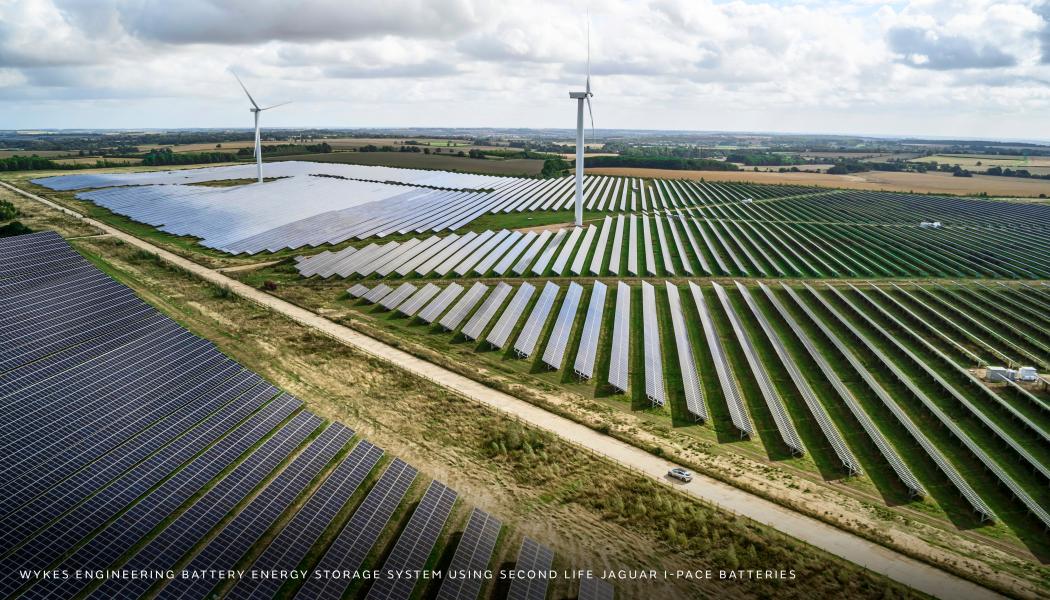Jaguar Land Rover has partnered with Wykes Engineering Ltd, a leader in the renewable energy sector, to develop one of the UK’s largest energy storage systems harnessing solar and wind power using used Jaguar I-Pace batteries.
The BESS system from Wykes Engineering uses 30 used I-PACE batteries and can store up to 2,500 kWh of energy. The batteries used are from prototype and technical test vehicles. By the end of 2023, Jaguar Land Rover aims to have enough batteries to store a total of 7,500 kWh of energy, enough to power 750 homes for a day. In the future, more units could be created to give new life to more used batteries from used production vehicles.
Connected to an advanced inverter for maximum efficiency and energy management, each BESS system can deliver power directly to the national grid during peak loads, as well as extract power from the grid when the load is low and store it for future use.
Battery storage systems such as these are essential to reducing CO2 emissions in the electricity grid, as they can handle sudden load peaks, maximizing the absorption of solar and wind energy when conditions are ideal and storing it for future use.
As part of the technical collaboration, Wykes Engineering and JLR achieved seamless integration, without the need for additional manufacturing steps or removal of battery modules. The batteries are simply removed from the Jaguar I-PACE and containerized directly on site, helping to maximize the sustainability of the project.
This partnership marks an important step in Jaguar Land Rover’s implementation of the principles of the circular economy, which is part of the company’s strategy to achieve carbon neutrality by 2039.
Battery availability for stationary purposes, such as renewable energy storage, could exceed 200 GWh per year by 2030, creating a global value of more than $30 billion**. Jaguar Land Rover batteries are designed to the highest standards and can therefore be used in low power situations when capacity is no longer sufficient for electric vehicles, which typically means 70-80% capacity remaining.
Reusing car batteries will create new business models for JLR both in energy storage and in other areas. When battery capacity also falls below the level required for these low-energy solutions, Jaguar Land Rover will recycle the batteries so that raw materials can be reused, just as in a true circular economy.
*Based on 2019 average annual household electricity consumption of 3,772 kWh = 72.3 kWh per week, UK energy consumption from 1970 to 2019
** McKinsey, Recycled Batteries for Electric Vehicles: The latest value group in energy storage

“Extreme tv maven. Beer fanatic. Friendly bacon fan. Communicator. Wannabe travel expert.”









More Stories
Brexit brings economic uncertainty – Finland worst hit in the long run – Hufvudstadsbladet
Britain wants closer ties with the European Union.
Britain may already be out of recession